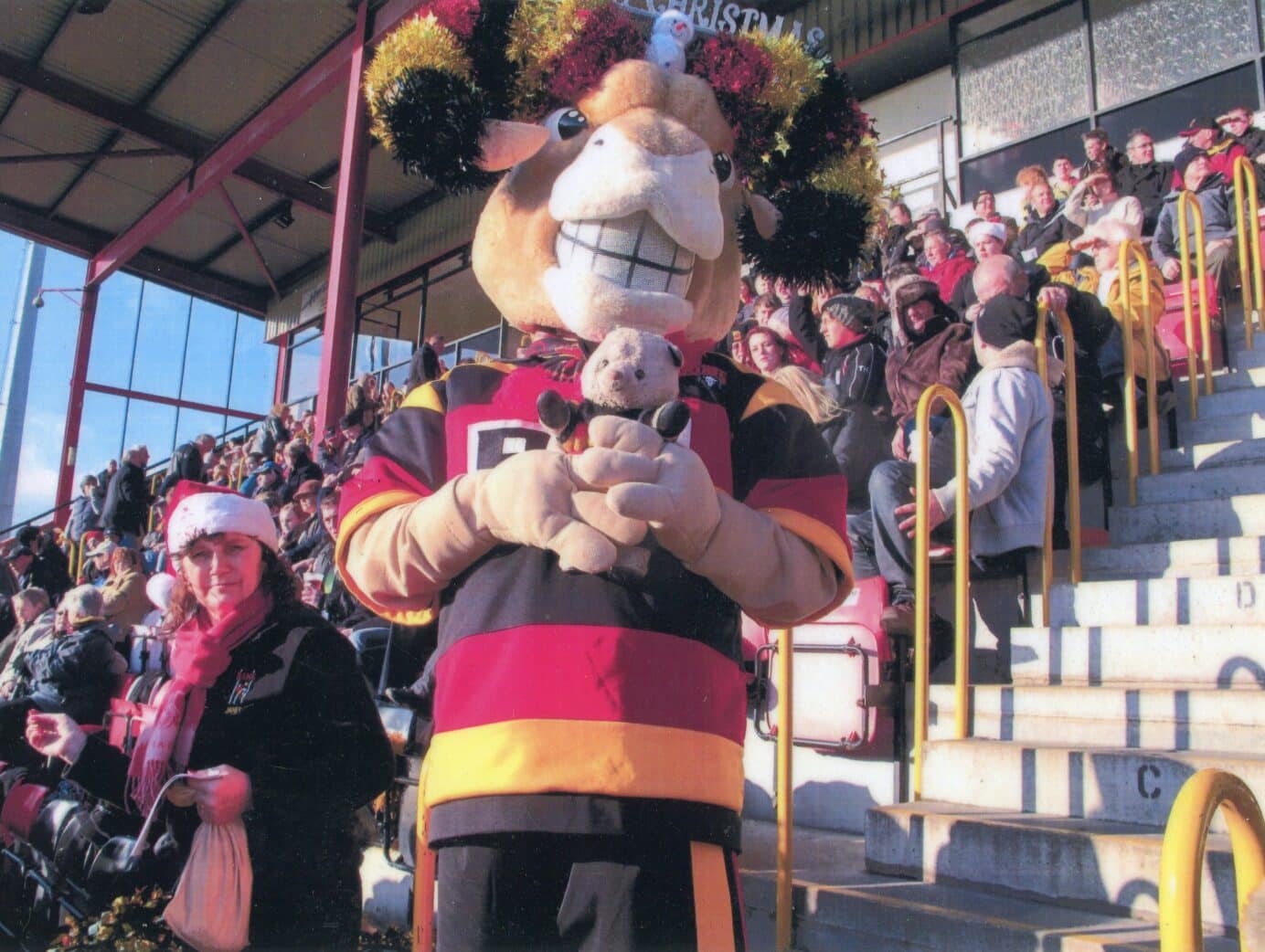A momentous shift in the sport, triggered by significant investment from Rupert Murdoch's News Corporation brought about the formation of the Super League and a switch to summer rugby. Despite finishing bottom the previous season, Dewsbury retained their place in the first division and, in the first season of a new era for the sport, the team, now coached by former player Neil Kelly, finished 9th.
Summer rugby further improved attendances for Dewsbury – increasing from 1324 average in 1995/96 to 1477 in 1996 – although this was much lower than the Keighley Cougars average attendance – who had an impressive marketing campaign (known as Cougar Mania) and average attendances of 4871 this season.
August 1996 Dewsbury, Batley Bulldogs and Huddersfield Giants were reported as having merger talks – plans were then reported as being “put on hold” in September 1996 – much to the relief of Dewsbury’s supporters.
1997. In preparation for the season, Dewsbury signed several Australian players and were reported as targeting several French players. Coach Neil Kelly blamed Maurice Lindsay for a failed transfer deals with Paris St Germain (work permit issues prevented Australians David O Donnell and Paul Evans joining from the French club). The RFL had to work to with the Department for Employment rules which prevented the signing of former Paris St Germain players, so preventing Dewsbury (and others) from strengthening their squads.
1997 Dewsbury started the new season as DEWSBURY RAMS – joining the ranks for RL clubs with a new name, logo and mascot, Roger Ram. Standing at almost seven feet tall, dressed in the red, amber and black colours of the team, Roger would be seen regularly entertaining the crowds, at home games played at the Tetley Stadium.
Barry Eaton’s dominance continued as leading point scorer – 2nd highest goal tally in all competitions and 3rd highest points tally, whilst Matt Bramald was the league’s second highest try scorer with 20 tries in the season. Dewsbury finished 6th in 1997.
1998. Dewsbury finished 3rd in the league – this improvement was recognised by Neil Kelly’s Coach of the Year award; this was Dewsbury’s best result for 13 years – achieved on a minimal budget.
Disappointingly, despite on field success the average crowd dropped to 1155 from 1470 in the previous year.
1998. Dewsbury Rams formally scrapped a twinning arrangement with Bradford Bulls in protest at Super League manoeuvring and breakaway rumours.
1998 The club’s “modernisation” continued – the Crown Flatt name was consigned to distant memory when the stadium was renamed Rams Stadium.
1999. Neil Kelly developed a team which played attractive rugby league – the halfback pairing of Barry Eaton and Richard Agar combined with the free-scoring three quarter line and backs to produce consistently good results.
The Rams finished top of the Northern Ford Premiership, the league below the Super League, reaching the Grand Final at Headingley. The showcase final against Hunslet Hawks provided almost 6000 supporters and a large TV audience with a nail biting spectacular. The two evenly matched teams were separated by Jamie Leighton’s 62nd minute field goal, giving Hunslet the victory and the right to be promoted to Super League (which was to be later taken away from them).
2000. Dewsbury came back even stronger, winning the Trans-Pennine Cup with victory over Leigh and topping the league for the second season in a row. The club, once again, reached the Grand Final – this time taking on Leigh at Bury F.C.'s Gigg Lane stadium in front of a 8487 crowd. A dramatic, late drop-goal from, man of the match, Richard Agar won the day for Dewsbury giving players, supporters and officials genuine hope of a place in Super League.
The regular season was characterised by teamwork within the Dewsbury squad – whilst Nathan Graham, Barry Eaton and Damian Ball were standout players, Neil Kelly’s team were respected for the depth of their squad- no less than 7 players scored 10 tries or more in the season. Barry Eaton was the league’s leading goal scorer for the season (145) and finished second in the points competition (348) to Keighley’s Martin Wood.
Unable to meet the minimum stadium requirements for Super League (as part of Rugby Football League's new 'framing the future' guidelines), the Rams proposed a ground share with Sheffield Eagles, playing home games at their Don Valley Stadium while their own stadium was improved. This proposal was turned down by the RFL and the club was left in a precarious position, having invested heavily in playing staff in the hope of taking their place among the sport's elite. The Rams withdrew their application following this initial rejection and were resigned to remaining in the lower leagues.


